
Lower Columbia Nontribal Gillnet Ban Bill Heard In Oly Committee
A bill to ban nontribal commercial gillnetting on the Lower Columbia as early as January 2025 attracted quite a bit of comment during a public hearing before a legislative committee in Olympia this afternoon.
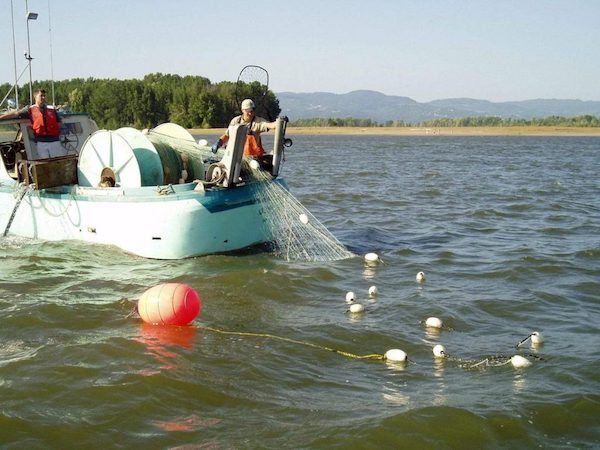
Over an hour and a half, Washington state lawmakers heard from dozens of people and organizations, including recreational fishing and conservation groups in support of Senate Bill 5297; commercial fishermen and seafood processors against it; and tribal leaders worrying that it sent the wrong message about the gear their fishermen use to catch salmon, steelhead and other fish.
A whopping 1,385 people who didn’t wish to testify in person also signed in as pro, with 153 con.
For prime sponsor Sen. Kevin Van De Wege (D-Sequim), it’s another run at a long-held goal and harkens back to his 2019 bill that aimed to kill nontribal gillnetting statewide before it was pared back to just the Lower Columbia, so it was “kinda fitting that we’re doing this on Groundhog Day,” he noted.
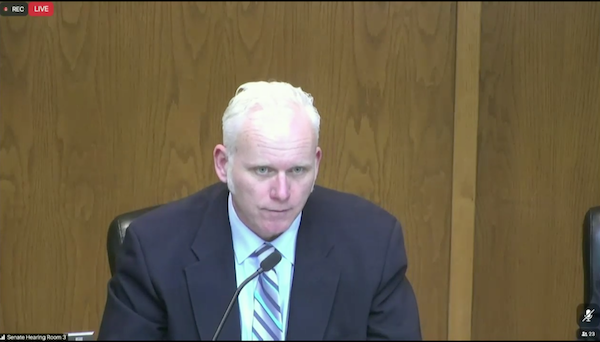
“I have never in my entire life been a fan of gillnets,” Van De Wege stated during the hearing carried live on TVW. “I don’t think I would have this legislation or sponsor this legislation, though, if we didn’t spend so much money trying to save salmon. We’re spending tens of millions of dollars a year trying to save salmon. I just have a passion that if we’re going to do that, we’re going to have selective gear to then harvest those salmon.”
Commercial fishermen will disagree and state managers – WDFW officially signed in as “other – will tell you they can manage seasons regardless of gear type, but for Van De Wege, gillnets are flat out “nonselective.”
Under the bill, fishery “impacts” – how many ESA-listed salmon and steelhead are allowed by federal overseers to be caught during fisheries – that are reserved for the nontribal gillnet fleet would be shifted to conservation efforts – getting more spawners on the gravel – or mark-selective sport fisheries with the power to hoover up surplus hatchery salmon so as to keep as many from mating with wild fish as possible as well as stay within federal requirements.
While Van De Wege called SB 5297 “my bill,” it’s officially listed as coming at the request of Governor Jay Inslee. His senior natural resource policy advisor Ruth Musgrave was on hand to speak to members of the senator’s Agriculture, Water, Natural Resources & Parks Committee in support of it.
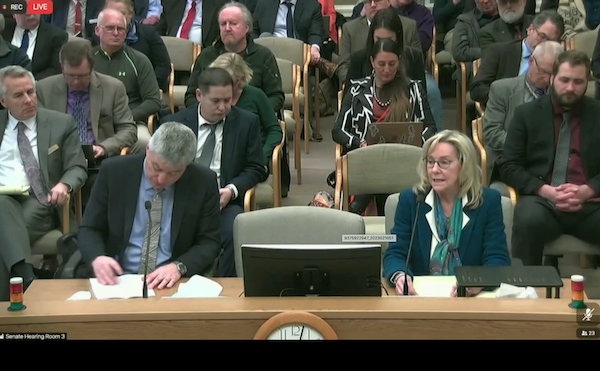
“The governor is passionate about salmon recovery in the state and this is a small step toward that goal,” Musgrave said.
She noted that last year’s nontribal commercial gillnet license buyback – funded by a “generous” $14 million proviso from the legislature – had reduced the number of Washington permits still out there to just 14 with Columbia River landings.
Under reforms begun in 2012, nontribal gillnetting has only been allowed on fall Chinook and coho, typically the strongest salmon stocks, above the mouth of the Lewis River to Bonneville Dam, but tweaks passed by the Washington Fish and Wildlife Commission in September 2020 opened the door for the practice during strong spring and summer Chinook returns.
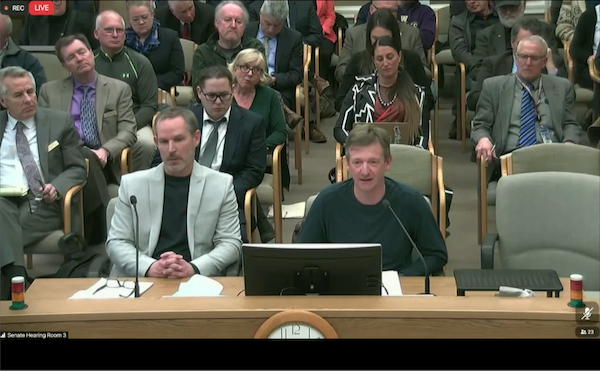
Bryan Irwin, vice president of government relations for the Coastal Conservation Association of Washington, said with the big river being the most expensive Endangered Species Act recovery project in the world, the chance to follow up the buyback with this bill shouldn’t be squandered.
Another element of the bill establishes an account in state coffers to continue buying back gillnetting licenses. Fellow CCAer Nello Picinich provided on update on the ongoing license return program that has angered senators, saying one gillnetter had sold six, er, netting north of $400,000.
Van De Wege made it clear that SB 5297 only applied to the mainstem of the Lower Columbia, not the SAFE, or Select Area Fishery Enhancement program, waters meant to support commercial fisheries. Those are near the mouth and mostly on the Oregon side, but there’s also Deep River between Ilwaco and Skamokawa on the Washington side.
“We’ve narrowed this bill even more from previous iterations of it that we’ve heard,” Van De Wege said.

Liz Hamilton, executive director of the Northwest Sportfishing Industry Association, was among those pulling out their history books and opening to the chapters on Columbia River salmon.
“For 30 years, NSIA has been keenly focused on all aspects of conservation for the fishery resources of the Columbia and the Pacific Northwest. I know many have said what [the National Oceanic and Atmospheric Administration’s Fisheries Service] said back in 1995, but I would like to share with you the direct quote from the NOAA recovery plan [for Snake River salmon]. It said, ‘By 2002, gillnets should be phased out for all nontreaty fishing on the mainstem Columbia River.’ NOAA further called for mark-selective fisheries and the use of terminal areas for nontreaty commercial fisheries,” she said.
Hamilton called those hatchery-powered terminal-zone fisheries – the SAFE areas – “enormously successful” for commercial netters, with more than 100,000 salmon landed in each of the last two years – more salmon than in 140 miles worth of sport fisheries on the Lower Columbia, she said.
Noting gillnetting wouldn’t be banned in the SAFE zones, Hamilton asked lawmakers to pass the bill.
“Wild Columbia salmon are at serious risk, with several stocks very close or approaching extinction thresholds,” warned Alexei Calambokidis of Trout Unlimited. “This bill isn’t a silver bullet to solving those problems. Reducing harvest impacts is a key part in building a plan to start the process of recovery.”
“Take bold steps,” urged George Harris, executive director of the Northwest Marine Trade Association, “or we’ll see wild stocks continue to decline.”
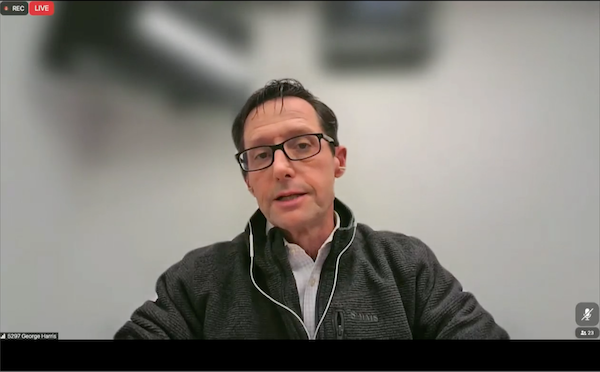
Even the Washington Potato and Onion Association was in favor of the bill. Its Mark Streuli – the father of Inslee advisor Nick Streuli – said that farmers and ranchers are engaging in conversations around salmon recovery.
“This addresses one factor,” he said.
Besides Van De Wege, other sponsors include a bipartisan collection of legislators – Sens. T’wina Nobles (D-Tacoma), Marko Liass (D-Edmonds/Mukilteo), Ann Rivers (R-North Vancouver), Jesse Salomon (D-Shoreline) and Lynda Wilson (R-East Vancouver).
COMMERCIAL INTERESTS WEREN’T BUYING the conservation imperative, however, arguing the bill was actually all about reallocation of those ESA impacts.
Shannon Moore, a Puget Sound gillnet fishermen, termed it a “divisive bill” that had “nothing to do with conservation.” Rather, it was “greed” on the part of CCA and affiliates.
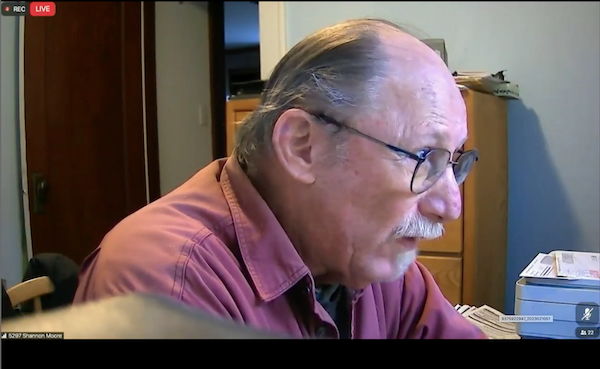
“The human footprint of the last 100 years is why we are where we are, not Lower Columbia gillnetting,” Moore said.
Robert Sudar, a commercial fish buyer in Longview who services markets from Seattle to Redmond to Tacoma, including one shop very particular about sourcing its salmon, said it would be the final nail in his business’s coffin after three of his four commercial fishermen sold their licenses in the buyback. He called it an “unnecessary bill” and said wild salmon and steelhead “will still be killed” during recreational fisheries. Some portion of released fish die and are accounted for in impact rates.
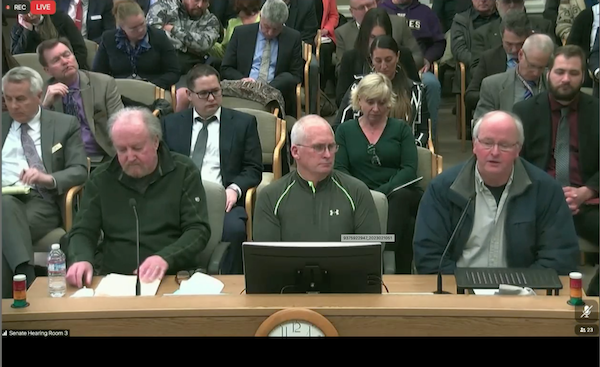
Jim Wells of Salmon For All, Lori Steele of the West Coast Seafood Processors Association and Jonathan Gonzalez of Pacific Seafoods referenced a letter signed by 27 organizations including the Association of Washington Businesses, all against it.
As did several tribal officials elsewhere in the meeting, Dale Beasley of the Coalition of Coastal Fisheries lauded the DFWs’ ability to manage commercial fisheries and said removing the gillnet fleet “forces Washington consumers to eat tilapia.” He worried about whether the Corps of Engineers would still dredge ports like Ilwaco and Chinook without a strong commercial fishing nexus and said gillnetting salmon was something of a less expensive entryway for up-and-comers.
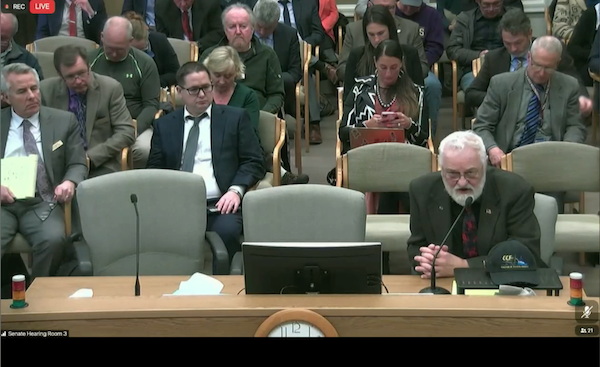
ALSO IN THE ROOM – virtually, at least – were high-ranking members of five tribes.
Robert de los Angeles, chairman of the Snoqualmie Tribe, was in favor of the bill.
“It is the teachings of our ancestors that as tribal people we are to fight for the protection of those who cannot speak – the salmon, the rivers, the trees – and I’m here today to do that,” he said, adding that the Columbia watershed’s 13 ESA-listed stocks would benefit.
He said that an “extensive” tribal analysis of the bill found “absolutely no impact” on treaty fisheries and rights and it would only affect nontribal gillnetters in the Lower Columbia, who were otherwise enjoying an “unearned privilege” to fish the big river.

But Gerald Lewis, chairman of the Yakama Nation, Lisa Wilson of the Lummi Nation and vice chair of the Northwest Indian Fisheries Commission, and Kadi Bizyaveva, a Stillaguamish Tribe fisheries manager, all were opposed because it stigmatized the way their people prefer to catch their fish, with a gillnet, as they have done for eons.
“I don’t think that’s right,” said Lewis.
Even if the bill didn’t affect their fisheries, it still “feeds into ‘nets across the river are the problem for salmon,'” said Wilson.
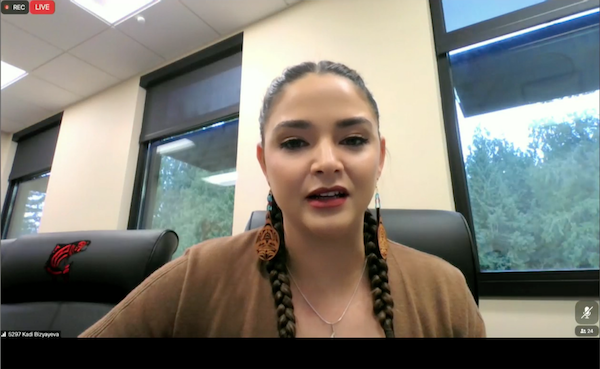
If just limiting gillnetting would bring the fish back, Stillaguamish Chinook wouldn’t be such a hugely constraining factor in Puget Sound and Washington fisheries during North of Falcon comanager negotiations, stated Bizyaveva, who said her tribe hasn’t held a commercial king season in 30 years.
Indeed, there are myriad factors at play with lagging salmon runs – climate change, massive human development of the region including seashore to peaktop logging and road building, pinniped and invasive species issues, too many Alaskan, Russian and Japanese hatchery pink and chum salmon in the North Pacific, and more. Corinne Sams of the Confederated Tribes of the Umatilla Reservation said tribes had “never lacked for fish” before settlement.
“If it weren’t for treaty rights, I don’t think we’d have any salmon,” added Wilson. Harvest isn’t the problem, she said, lost hatchery production and habitat is. “When you point fingers, three point back at you,” she said.
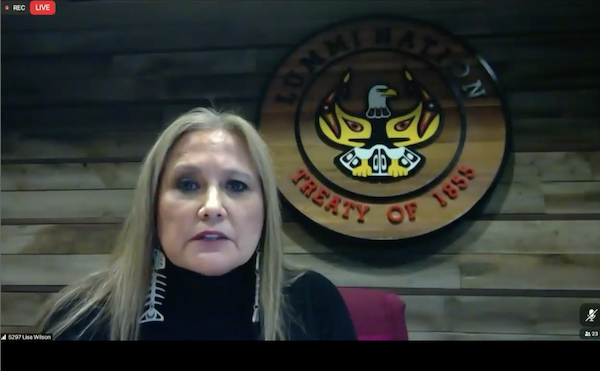
Bizyaveva said the bill would “only exacerbate” racist rhetoric and endorse “racist misconceptions” around tribal gillnetting. She said that mesh size restrictions allow juvenile fish to pass through the nets and for the largest, most fecund ones to bounce off or go around them and continue their journey to the spawning grounds.
The sportfishing world has moved on from where it was on tribal gillnetting during the Fish Wars and Boldt Decision of the 1960s and ’70s, but a few still lurk there and their comments on social media are noted and filed in tribal binders.
Speaking on behalf of the governor, Musgrave, his natural resource advisor, said that there was $500,000 in Inslee’s budget to protect tribal fishermen from harassment as they prosecute their fisheries.
Sen. Derek Stanford (D-Bothell), who is Democratic leadership’s liaison with the tribes, asked Musgrave if that would end the harassment.
She replied that “most unfortunately” it was likely to continue, but also that it had been much worse in the 1970s. In some cases, WDFW and tribal comanagers alternate fishing days to prevent gear conflicts.
Stanford asked if the Governor’s Office had consulted with tribes on the bill, and she indicated they had; Van De Wege added that he and Musgrave had both been in meetings with tribal officials.
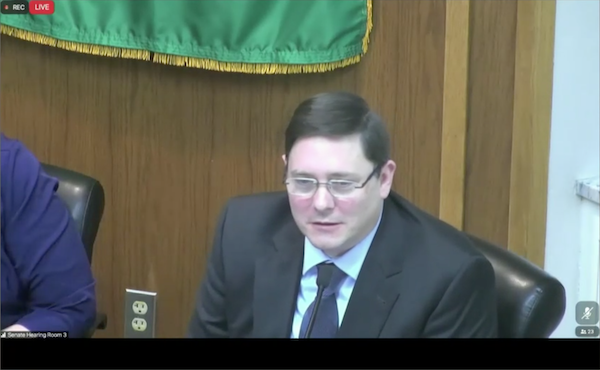
And Stanford inquired of committee legislative staff if the impacts – those allowable mortalities of ESA-listed fish – could be switched to nontribal commercial pound nets, one of which is being tested by Wild Fish Conservancy on the Lower Columbia.
“That would be possible with the bill,” Stanford was told by the staffer briefing lawmakers.
Even if Washington bans nontribal commercial gillnetting on the mainstem Columbia, it would still be allowed by comanagers at ODFW, though the Oregon legislature has seen introduction of a buyback bill in recent days.
NEXT UP FOR SB 5297 would be a committee recommendation to the full Senate. At this point, that hasn’t been scheduled, but that committee report needs to be read onto the floor of the upper chamber by February 17 and the bill passed by March 8. At this time there is not a companion bill on the House side, which would ease final passage somewhat.
Having reported on this issue over the years, I’d reckon that the bill has a fair chance of continuing to move through the legislature. All sides had pretty good points, but it feels like with the backing of the governor – who is putting himself on the line with the tribes somewhat – it may have some momentum that other gillnet bills didn’t. Ultimately, it’s a decision how the state manages its own fisheries, but it would behoove sportfishing leaders to also address the tribal concerns around the bill.
Correction, 9:45 p.m., February 2, 2022: The first name of Corinne Sams of the Confederated Tribes of the Umatilla Reservation was misspelled in the initial version of this blog. Our apologies.

